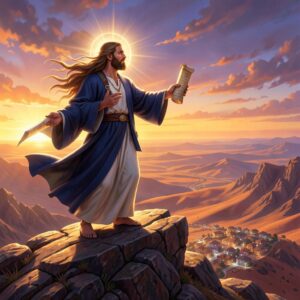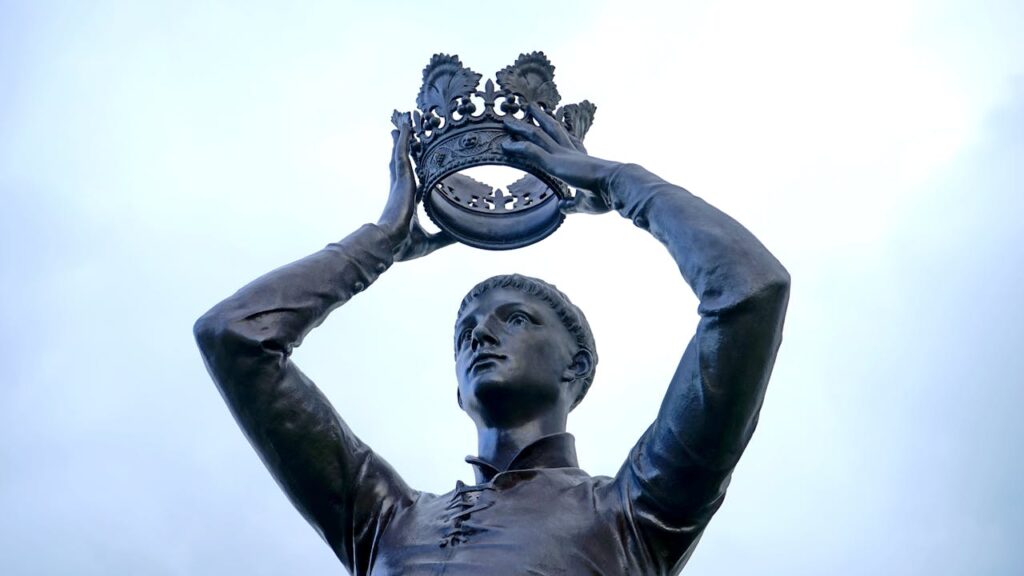
Explore & Play
Discover interesting topics and solve the accompanying crossword puzzle.
Legendary king crossword | Legendary kings and their legacies
Table of Contents
Legendary King Crossword
You can either fill in the crossword puzzle directly on this page or click the button in the bottom right corner to print it for free.

Ruling with Power and Wisdom: How Legendary Kings Led Their Kingdoms
Throughout history, certain kings have stood out not only for their power but also for the wisdom they demonstrated in their rule. Their decisions shaped nations, altered the course of history, and created legacies that continue to inspire modern leaders. Many of these kings are remembered for their military conquests, wise governance, and the remarkable ways they navigated political and personal challenges. Throughout this article, we will touch upon legendary kings whose names are featured in the “Legendary King crossword puzzle,” illustrating their lasting influence on their kingdoms and beyond.
1. The Role of Power in Monarchy
1.1. Military Conquests and Empire Building
Power was a defining trait of legendary kings, and it manifested in many forms: military conquests, strategic marriages, and diplomatic maneuvers. Some kings, such as Alexander the Great, rose to prominence through sheer military brilliance. Alexander’s campaigns spread Greek culture across much of Europe, Asia, and Africa, laying the foundation for the Hellenistic period. His strategic prowess was evident in his ability to adapt to various battlefield conditions and outsmart larger, more established empires. His influence on the world cannot be overstated; he not only conquered vast territories but also ensured the survival of Greek culture in far-flung regions.
Similarly, Charlemagne, the king of the Franks, expanded his empire through military conquest, eventually uniting much of Western Europe. His reign marked the Carolingian Renaissance, a period of cultural and intellectual revival. Charlemagne’s ability to balance military strength with a keen eye for governance laid the groundwork for the future of European monarchies.
1.2. Strategic Marriages and Alliances
While military conquests often make for dramatic stories of power, strategic marriages and alliances played an equally crucial role in shaping royal authority. Kings like Ferdinand of Spain forged powerful unions that significantly enhanced their political standing. His marriage to Isabella of Castile in 1469 united the two largest Spanish kingdoms, eventually leading to the unification of Spain and the beginning of the Spanish Empire. This alliance not only consolidated their power within the Iberian Peninsula but also enabled their sponsorship of the voyage that brought Christopher Columbus to the Americas.
Likewise, Henry VIII of England famously sought to use his marriages as a means to secure political alliances, although his personal life became just as significant as his political maneuvers. His decision to break with the Catholic Church and establish the Church of England was, in part, influenced by his need for an heir, but it also altered the religious landscape of Europe forever.
2. Wisdom and Fairness in Leadership
2.1. The Wise Ruler: King Solomon
While power might have been the hallmark of many kings, wisdom and fairness in leadership set others apart, ensuring long-lasting legacies. Solomon, famed for his wisdom, left a legacy that continues to inspire rulers and leaders to this day. His decisions, including the famous judgment over the two women and the baby, displayed a deep sense of justice and moral clarity. Solomon’s reign is often seen as a golden age for Israel, marked by prosperity, peace, and significant cultural achievements.
Moreover, Solomon’s wisdom extended beyond legal matters. He built the First Temple in Jerusalem, a monumental architectural achievement that became a symbol of Jewish identity. His leadership, characterized by fair dealings and an emphasis on intellectual growth, serves as a model for kings and leaders to this day.
2.2. The Wisdom of David and His Kingdom
The biblical king David was known not just for his victory over Goliath, but for his ability to lead a diverse and often divided kingdom. His leadership strategies in uniting the twelve tribes of Israel are a testament to his political and military acumen. Despite his flaws and personal struggles, including his tumultuous relationship with his son Absalom, David demonstrated an ability to make difficult decisions for the good of the kingdom.
David’s wisdom was also reflected in his ability to balance military conquests with religious devotion. He established Jerusalem as the capital and brought the Ark of the Covenant to the city, setting the stage for his son Solomon to build the Temple. David’s legacy as a wise leader and unifier remains one of the most respected in history.
3. Legendary Kings Who Were Defined by Their Character
3.1. The Golden Touch of Midas
While power and wisdom were vital, many legendary kings were defined by their distinctive characters, which influenced their decisions and actions. Midas, one of the most famous figures in Greek mythology, is remembered not just for his riches but for the curse of his golden touch. According to the myth, Midas was granted the ability to turn everything he touched into gold, but he soon realized the curse of his gift when even food and his daughter became gold.
Midas’ story serves as a cautionary tale about the dangers of greed and the importance of wisdom. His character, defined by his longing for wealth, ultimately led to his downfall. While he sought power, his wisdom and understanding were clouded by his desires, making him a tragic figure in the annals of history.
3.2. Ramses: The Pharaoh Who Led with Divine Authority
Ramses the Great, often depicted as a divine ruler, left a profound impact on ancient Egypt. His reign, which lasted for over six decades, is marked by both military achievements and monumental building projects, including the famous temples at Abu Simbel. Ramses’ authority was often seen as divinely ordained, and his ability to maintain control over a vast empire is a testament to his leadership skills.
Unlike many kings, Ramses knew how to balance military conquest with the peaceful consolidation of power. His long reign also gave him time to solidify his legacy through his building projects, which not only demonstrated his wealth and power but also his desire to leave a lasting imprint on Egyptian culture and religion.
4. Kings Who Led Through Innovation and Legacy
4.1. Sundiata and the Rise of the Mali Empire
Some kings were pioneers, changing the trajectory of their nations through innovation, culture, and law. Sundiata, the founder of the Mali Empire, was a king who blended power with profound wisdom, creating a legacy of wealth and culture. Sundiata’s rise to power, after overcoming personal hardships, led to the establishment of one of the most powerful empires in West Africa. His leadership transformed Mali into a major center of trade, education, and culture, particularly through the development of the famous city of Timbuktu.
Sundiata’s legacy continues to be celebrated in the region, not only for his military victories but also for his role in establishing an empire that would last for centuries.
4.2. The Contributions of Sejong in Korean History
Sejong, King of Joseon Korea, is remembered for his innovations and cultural contributions, which shaped the nation’s future. One of his most significant achievements was the creation of the Korean script, Hangul, which made literacy more accessible to the common people. Before Sejong’s reign, literacy was largely limited to the elite, but Hangul allowed for a broader distribution of knowledge.
Sejong also promoted scientific advancement and agricultural reform, making significant strides in public welfare. His reign marked a period of peace and prosperity for Korea, where his innovations and wisdom continue to resonate in the country today.
5. Conflict and Leadership: How Legendary Kings Dealt with War
5.1. Agamemnon and the Trojan War
Many legendary kings were not only rulers of peace but also warriors, leading their people through times of intense conflict and war. Agamemnon, the Greek leader during the Trojan War, is remembered as much for his leadership as for his tragic flaws. Agamemnon led the Greek forces against Troy, securing the eventual fall of the city, but his leadership was also marked by internal strife and personal sacrifice.
His tragic decision to sacrifice his daughter Iphigenia to appease the gods for a successful campaign against Troy highlights the complex nature of his leadership. Agamemnon’s story is one of power, sacrifice, and the weight of leadership during wartime.
5.2. The Viking Leadership of Ragnar
Ragnar, a legendary Viking chieftain, exemplified the power and influence of Norse kings during the Viking Age. His raids across Europe were not only a display of military might but also strategic brilliance. Ragnar’s leadership was defined by his ability to inspire loyalty in his warriors and his tact in battle.
Ragnar’s sagas, although partly mythological, portray him as a fearless leader who understood both the ferocity of war and the importance of diplomacy. His reign is emblematic of the Viking Age, where leaders like Ragnar combined military prowess with visionary leadership.
6. The Influence of Religion in Royal Rule
6.1. The Role of Religion in the Reign of Constantine
For many legendary kings, religion played a crucial role in their leadership and in maintaining the loyalty of their subjects. Constantine, the first Christian emperor of Rome, changed the course of history by making Christianity the state religion. His conversion and subsequent endorsement of Christianity led to the religion’s widespread acceptance, profoundly altering the religious landscape of Europe.
Constantine’s support for Christianity also resulted in the construction of key Christian institutions and the eventual rise of the Byzantine Empire. His rule marked a turning point in Roman history, one where religion and politics intertwined to reshape the empire.
6.2. Ashoka and the Spread of Buddhism
Ashoka, the Indian emperor, is often remembered for his dramatic transformation from a ruthless conqueror to a promoter of peace and Buddhism. After witnessing the horrors of the Kalinga War, Ashoka adopted Buddhism and sought to rule with compassion, advocating for nonviolence and the welfare of his subjects.
Ashoka’s conversion to Buddhism not only shaped his governance but also influenced the spread of Buddhism throughout Asia. His edicts, carved into stone pillars, served as both a political and spiritual guide for his people.
7. The Personal Struggles of Legendary Kings
7.1. The Tragic Life of Oedipus
Even the most legendary kings faced personal struggles, from betrayals to family conflicts, that shaped their leadership and their legacy. Oedipus, the tragic king of Thebes, is best remembered for the curses that befell him due to fate and family conflict. His struggle to avoid his prophesied fate ultimately led to the fulfillment of that prophecy, where he unknowingly killed his father and married his mother.
Oedipus’ story is a powerful exploration of destiny, free will, and the consequences of personal decisions. It serves as a cautionary tale about the limitations of power when confronted with forces beyond control.
7.2. The Struggles of Tarquin in Rome
Tarquin, the last king of Rome, faced personal and political struggles that ultimately led to his downfall and the establishment of the Roman Republic. His tyrannical rule sparked unrest among the Roman elite, leading to his expulsion and the end of the monarchy in Rome.
Tarquin’s reign serves as a lesson in the dangers of absolute power and the fragile nature of royal authority. His personal ambition and oppressive rule set the stage for the rise of Roman republicanism, influencing the development of the modern political system.
8. The Enduring Legacy of Legendary Kings
8.1. The Lasting Influence of Legendary Kings
The legacies of these legendary kings have endured through history, inspiring leaders and captivating the imaginations of countless generations. Whether through military conquests, wise governance, or the personal trials they faced, these kings left an indelible mark on their kingdoms and the world. Their stories continue to be told in literature, art, and culture, influencing modern leaders who seek to emulate their wisdom and power.
Conclusion: Kings of the Past and Their Lessons for Future Leaders
As we reflect on the lives of these legendary kings, we can draw lessons that are relevant even today, in leadership, strategy, and the balance of power and wisdom. Their stories remind us that leadership is not only about authority but also about the wisdom to guide people through challenging times.
Share to...
I hope you enjoy the content.
Want to receive our daily crossword puzzle or article? Subscribe!
You may also be interested in
Share to…
Want to receive our daily crossword puzzle?
-
Jigsaw Puzzles
Blue-Eyed Kitten Puzzle Delight 250 | 300 | 500 Pieces
kr 348,00 – kr 439,00Price range: kr 348,00 through kr 439,00 Select options This product has multiple variants. The options may be chosen on the product page -
Jigsaw Puzzles
Zodiac Ink Art Puzzle: The Playful Monkey 250 | 300 | 500 Pieces
kr 348,00 – kr 439,00Price range: kr 348,00 through kr 439,00 Select options This product has multiple variants. The options may be chosen on the product page -
Jigsaw Puzzles
Rose-Tinted Dreams Floral Puzzle 250 | 300 | 500 Pieces
kr 348,00 – kr 439,00Price range: kr 348,00 through kr 439,00 Select options This product has multiple variants. The options may be chosen on the product page

















